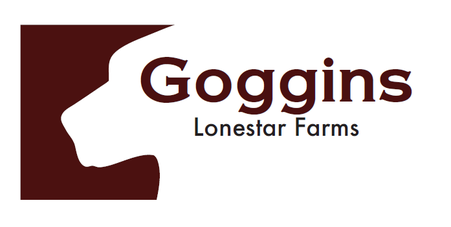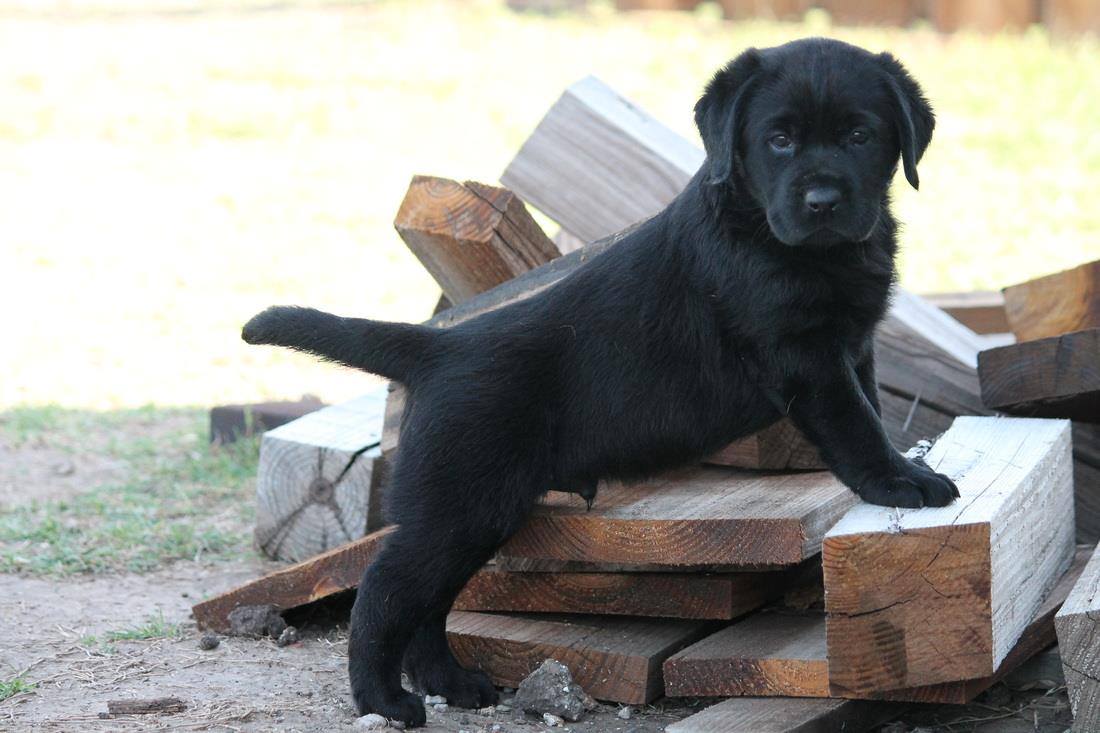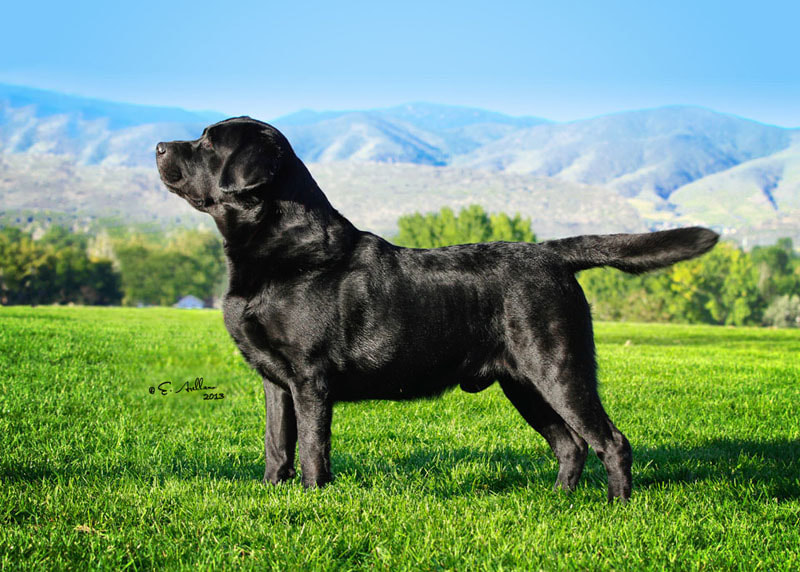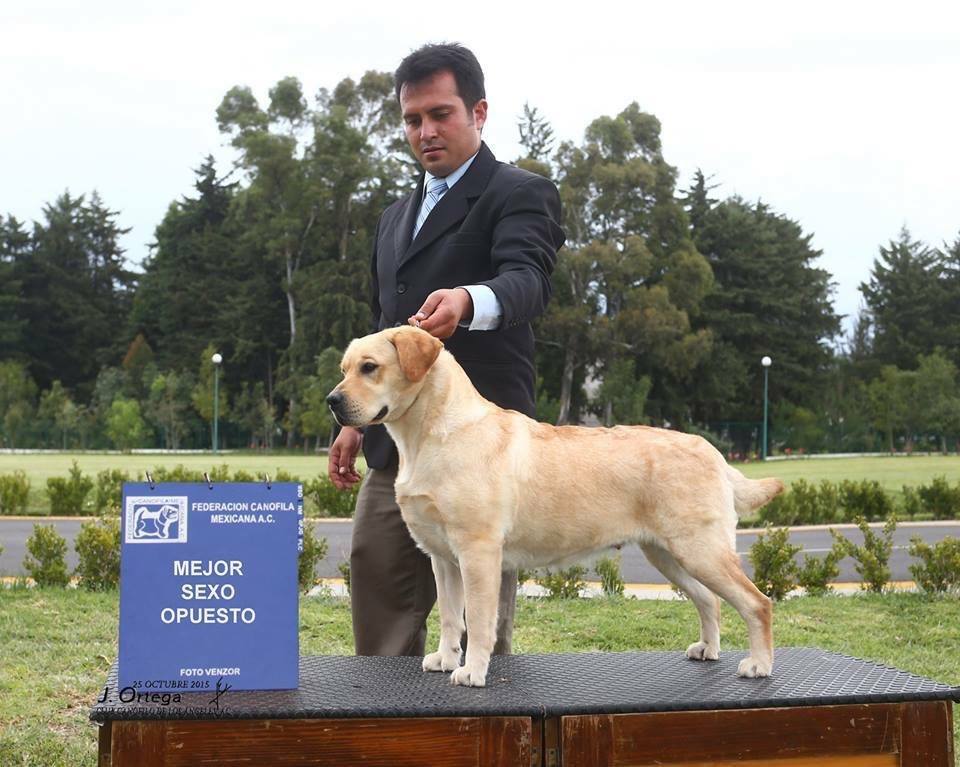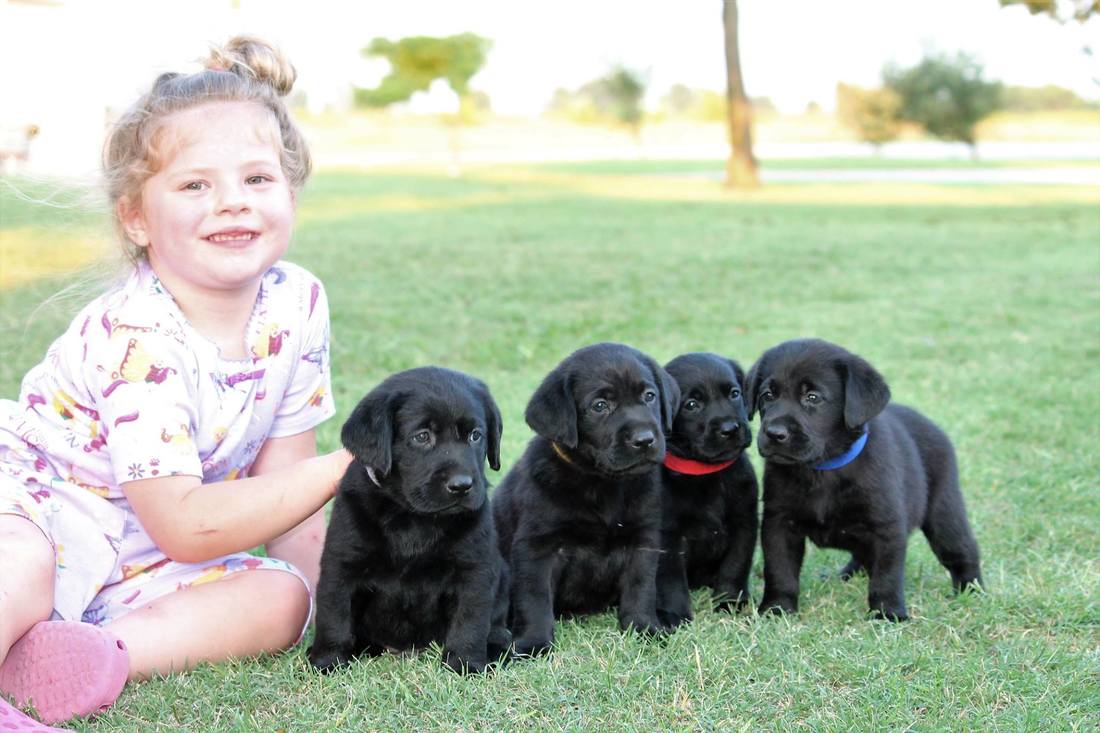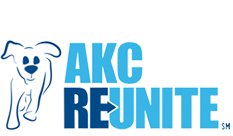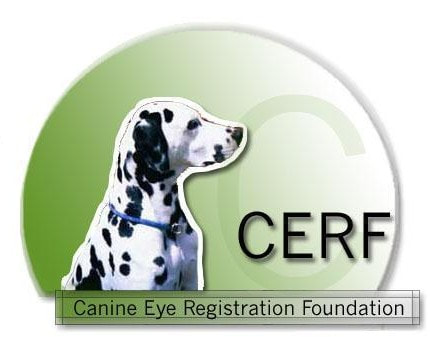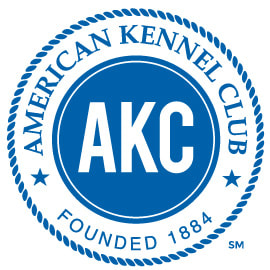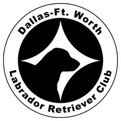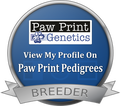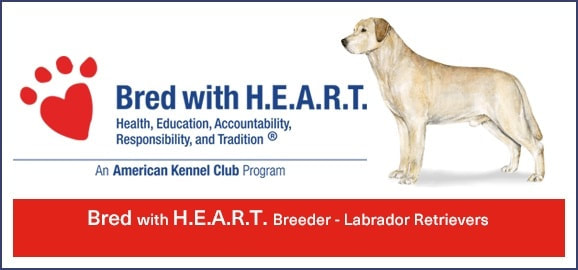|
Welcome to our farm; Home to AKC Champion Quality English Labrador Retrievers.
Life is too short to be mediocre - Not your average Labrador! Our mission is to pair families with the unparalleled companionship of Champion Quality English Labrador Retrievers. We do this by having great Pedigrees, Personalities, and Place! We are a Christian based, small time, Texas quality breeder of Champion Quality English Labrador Retrievers. Our primary focus is on health, confirmation, and temperament. Focusing on quality over quantity, we have a limited amount of breeding females, which allows us to give each of our dogs the love and attention they deserve! Our dogs have a sweet life; living on a farm where they are able to run, swim, play and enjoy the country life style as they wish! When not roaming the farm, they can be found relaxing and enjoying the climate controlled pet lodge. |
Our website is our way of openly showing you our operation, we hope you enjoy looking around. If your interest grows for a Champion Quality English Labrador Retriever puppy, we would delight the opportunity to host your family in person where we would eagerly show off our family, farm, and of course our four-legged family members that have blessed our lives!
Mark, Kacee, Avery, Heston, and Parker Goggins
Mark, Kacee, Avery, Heston, and Parker Goggins
We are proud to have the opportunity to serve your family by producing AKC Champion Quality English Labrador Retrievers that have/are:
- Premier Quality
- Elite Genetics
- Rigorously Tested
- Lovingly Raised
Elite Genetics
|
We focus on improving the Labrador Retriever breed, continually looking for ways to add quality to pedigrees and foundations of our dogs. AKC ensures the lineage of the Labrador has the highest fidelity, we take it further in evaluating their dispositions and health before we bring them into our stock. Beyond the parents, we research the grandparents and great grandparents where possible. We have been very fortunate (and selective) with the animals we have, aside from the occasional allergy, know they will be healthy as possible when they go to their forever homes.
|
Premier Quality
|
With our small numbers and desire for the best, we set our standards high by breeding excellent females to the most outstanding males. We guarantee the high quality of our puppies by selectively choosing our females and males based on their family history and genetic testing. We look to provide your family with Champion Quality English Labrador Retrievers that will add value to your life!
|
Rigorous Testing
|
The tests that we have performed on our dogs are the OFA Hips, OFA Elbows, CERF Eyes and Optigen PRCD-PRA. The OFA Hip and Elbow tests clear our dogs from hip and elbow dysplasia. The CERF Eyes and Optigen PRCD-PRA test clears our dogs from cataracts, retinal folds and retinal deterioration. We are then able to guarantee that puppies we produce therefore, are genetically cleared from these disorders as well, due to the fact that our dogs are tested and cleared.
|
Lovingly Raised
|
Our dogs are apart of our family, as well as their puppies. Puppies are born in our home and well socialized! By the time the pups are ready to go to their new home, we have them well traveled, socialized with and adapted to different environments - further nurturing the emotional intelligence of puppies.
Goggins Lonestar Farms have the ideal temperament due to their superior genetics, as well as the various adaptive techniques, where each puppy has been conditioned by;
|
The Farm
Our home is located in Decatur, TX with 10 acres for the dogs and kids to run daily. We also have more than a hundred acres of family farmland in Whitewright, TX, where we have the opportunity to stay on holidays and weekends. Both properties have ducks, chickens, fish, a few wild animals, and of course our dogs. The puppies are well versed with both locations; making them well traveled, adaptable, and highly stimulated! We let all the dogs have the run of the place about every other day; they enjoy running over the property, exploring new smells and reviewing new things that have come onto the place.
We feel bringing a puppy into your home should be a life long commitment. We want you to know the puppy you receive from Goggins Lonestar Farms is raised in a healthy and caring environment.
We love showing families around these properties, however, due to Covid-19 concerns, we are limiting visitations at this time. To compensate, we have tried to upload additional videos/pictures from around the property, so that you can gain a better perspective of the environment in which our family/puppies share.
We feel bringing a puppy into your home should be a life long commitment. We want you to know the puppy you receive from Goggins Lonestar Farms is raised in a healthy and caring environment.
We love showing families around these properties, however, due to Covid-19 concerns, we are limiting visitations at this time. To compensate, we have tried to upload additional videos/pictures from around the property, so that you can gain a better perspective of the environment in which our family/puppies share.
American Vs English Labs; The History of the Labrador Retriever
By Donna Stanley (Endless Mt. Labradors)
We would like to take this opportunity to introduce you to the history of the Labrador Retriever, as we have included our personal history in the homepage text as well as in the section, “about us”.
So many people ask us, “what’s the difference between the “English” and the “American” (field) labs? There is such a big difference that the AKC has, at times, considered splitting the breed. There is a difference in build, as well as temperament.
If you are looking for strictly a “field” dog for field trial competition, go for the American field dog. They are athletic, tall, lanky, thin, but they can have VERY hyper, high-strung personalities which do not always lend themselves to being the best indoor “family dogs.” (Not EVERY American lab will be this way, we are only talking in general!)
On the other hand, the English labs are very blocky, stocky, shorter in their build, but should still maintain good movement and agility in the field. English labs are very sweet, quiet, mellow, lovely dogs. They still maintain their natural instinct to retrieve and use their noses (after all, Life is too short to hunt with an ugly dog!!), but will be much more controllable in the field, and will also be your family companion at your fireside after a day of hunting.
One of the reasons Endless Mt. Labradors stresses, the “all-purpose” lab (English lab) is because we strive to develop ALL the best qualities of the Labrador, and we do not sacrifice one trait in order to emphasize another. If anything, we major on temperament, because a dog can be beautiful in confirmation, and have a lovely pedigree, and hunts well, but if it does not pass our temperament test, it is out of our breeding criteria.
The Labrador was originally bred to be able to navigate and swim in the icy waters off of Newfoundland, and off the shores of Labrador (a cliffside town). They have a thick undercoat which shields them from the extremes of both cold and heat. Labs first appeared in English maritime towns that were engaged in the fishing industry. Today, the lab is the most popular breed in the U.S. due to their versatility, sporting ability, and their roles as loyal companions. It has the substance and soundness to hunt waterfowl and upland game. The lab has a short, dense, weather-resistant coat, and “otter” tail, a clean- cut head with a broad back skull and moderate stop, and kind, expressive eyes that communicate intelligence and good temperament.
Labs have few health problems if bred by a reputable breeder who is selective and screens for defects in their breeding stock. Labs are also wonderfully “maintenance free”…no need for grooming, brushing, etc. Just clip their nails occasionally, give a bath every 2-3 months if kept indoors (they are very “non-oily” dogs, seldom ever “stinky”, and rarely need bathing) Do not “over bathe” it will cause flaking and may dull the coat.
Labs are very sensitive to food allergy that may affect their coat and skin (raw sores may erupt if not fed appropriate food! See our “Dog Nutrition” page). Feed ONLY breeder- recommended foods and appropriate supplement. It will save you the headache and heartache of many trips to the vet for simple nutritional needs that specifically pertain to labs.
Call or email us for our recommendations.
We would like to take this opportunity to introduce you to the history of the Labrador Retriever, as we have included our personal history in the homepage text as well as in the section, “about us”.
So many people ask us, “what’s the difference between the “English” and the “American” (field) labs? There is such a big difference that the AKC has, at times, considered splitting the breed. There is a difference in build, as well as temperament.
If you are looking for strictly a “field” dog for field trial competition, go for the American field dog. They are athletic, tall, lanky, thin, but they can have VERY hyper, high-strung personalities which do not always lend themselves to being the best indoor “family dogs.” (Not EVERY American lab will be this way, we are only talking in general!)
On the other hand, the English labs are very blocky, stocky, shorter in their build, but should still maintain good movement and agility in the field. English labs are very sweet, quiet, mellow, lovely dogs. They still maintain their natural instinct to retrieve and use their noses (after all, Life is too short to hunt with an ugly dog!!), but will be much more controllable in the field, and will also be your family companion at your fireside after a day of hunting.
One of the reasons Endless Mt. Labradors stresses, the “all-purpose” lab (English lab) is because we strive to develop ALL the best qualities of the Labrador, and we do not sacrifice one trait in order to emphasize another. If anything, we major on temperament, because a dog can be beautiful in confirmation, and have a lovely pedigree, and hunts well, but if it does not pass our temperament test, it is out of our breeding criteria.
The Labrador was originally bred to be able to navigate and swim in the icy waters off of Newfoundland, and off the shores of Labrador (a cliffside town). They have a thick undercoat which shields them from the extremes of both cold and heat. Labs first appeared in English maritime towns that were engaged in the fishing industry. Today, the lab is the most popular breed in the U.S. due to their versatility, sporting ability, and their roles as loyal companions. It has the substance and soundness to hunt waterfowl and upland game. The lab has a short, dense, weather-resistant coat, and “otter” tail, a clean- cut head with a broad back skull and moderate stop, and kind, expressive eyes that communicate intelligence and good temperament.
Labs have few health problems if bred by a reputable breeder who is selective and screens for defects in their breeding stock. Labs are also wonderfully “maintenance free”…no need for grooming, brushing, etc. Just clip their nails occasionally, give a bath every 2-3 months if kept indoors (they are very “non-oily” dogs, seldom ever “stinky”, and rarely need bathing) Do not “over bathe” it will cause flaking and may dull the coat.
Labs are very sensitive to food allergy that may affect their coat and skin (raw sores may erupt if not fed appropriate food! See our “Dog Nutrition” page). Feed ONLY breeder- recommended foods and appropriate supplement. It will save you the headache and heartache of many trips to the vet for simple nutritional needs that specifically pertain to labs.
Call or email us for our recommendations.
For the AKC “Breed Standard” for the Labrador Retriever click here
Some terms I hear that are NOT descriptive of an English Labrador:
Some terms I hear that are NOT descriptive of an English Labrador:
- They don’t have “blockheads”…that infers they are stubborn or something. The term we use is a “blocky head.”
- They do not have “short snouts” they have a bit shorter muzzles, but remember, a lab’s form should meet its function, so the muzzle should be large enough to carry a large bird.
- English labs are not “fat.” What you are seeing is “bone,” “substance,” and ‘rib-spring.” When I hear someone say, “I have a nice FAT English lab.” I hear “obese.” And if i ask for pictures, I’m usually right. Some people may use the word “stout” and I know what they mean…as long as its muscle, bone, substance and rib spring, its ok…
Congratulations, you have found the site of a reputable breeder… We thank you for taking the time to research this lifelong commitment.
The All-Purpose Labrador
We have a very limited amount of dogs, as a way to keep our numbers down and ensure the best genetics available, we breed to select stud dogs (all extensively tested & Champion Quality English Labrador Retrievers). All of our dogs are able to run, play and swim freely. Each of our adult dogs are inside/outside dogs and are an intricate member of our family! We are so glad that we are able to share our passion and love for both English Labrador Retrievers with the rest of the world!
Most importantly, we believe in producing the true all-purpose Labrador. Of course you are here because you are looking for a Lab. And of course, there are hundreds of other breeders. But it’s WHY we do what we do that sets us apart. For nearly 20 years, we’ve sought and dreamed to make sure each and every dog we produce exceeds all of our expectations. Each dog must be one that we would want for our personal pet. We also desire to exceed YOUR expectations in EVERY step of the process in finding your new canine family member. After all, this is a 15+ year decision, and not one to be taken lightly. And we want you to be a proud Pet Parent who will never regret entrusting your “Labby Love” dream to our hard work, love, and commitment to this breed.
Most importantly, we believe in producing the true all-purpose Labrador. Of course you are here because you are looking for a Lab. And of course, there are hundreds of other breeders. But it’s WHY we do what we do that sets us apart. For nearly 20 years, we’ve sought and dreamed to make sure each and every dog we produce exceeds all of our expectations. Each dog must be one that we would want for our personal pet. We also desire to exceed YOUR expectations in EVERY step of the process in finding your new canine family member. After all, this is a 15+ year decision, and not one to be taken lightly. And we want you to be a proud Pet Parent who will never regret entrusting your “Labby Love” dream to our hard work, love, and commitment to this breed.
Pedigree - Why it Matters
(Credit for this Response, to Candyheart Labradors)
A good pedigree isn’t everything, but it is a very good place to start when you want to learn something about a dog or it’s line. Even if all you want is a good family pet, you still want a healthy dog, a beautiful dog, and a smart, trainable dog right? And you probably also want to know that the pup was well bred and did not come from an uneducated breeder or a puppy mill right?
Well, a pedigree can tell you a lot about a dog. For example, an AKC certified pedigree will show you the health clearances, if any, of each dog in your pup’s family tree. You will be able to see if the parents, grandparents, and great grandparents were tested for their hips, elbows, eyes, etc. This is extremely important if you want a healthy dog.
You can also see if any of your dog’s parents, grandparents, or great grandparents earned any titles. Again, if you don’t want to show, hunt, or breed your dog you may wonder why this is important, however when there are a lot of champion show dogs in your dog’s pedigree you can see that your pup comes from a long line of beautiful dogs with correct confirmation. It also means that you have a reasonable expectation of how tall and heavy your pup will grow to be since champions must meet the AKC’s breed standard in size and weight, so you can be assured that your pup will not grow to be twice the size it’s supposed to.
If your dog doesn’t have any titles in his or her pedigree, how do you know how he or she will turn out? Will she weigh 65 lbs or 105 lbs? Will she be pretty or smart? It may even have health problems steaming from the fact that it’s body is improperly proportioned or caring too much weight for its breed.
If you are looking for a dog with certain expectations in mind as to how the dog will look, how big it will get, if it will be healthy, and if it will be smart and trainable, carefully examining its pedigree is very, very important.
One last thing to consider is, a well bred, beautiful, smart, & trainable dog will come from breeders who spend the time and money to put titles on them and prove their dogs beauty, intelligence, and performance ability. If a dog has little to no titles in his or her pedigree and little to no health certifications, it either came from a puppy mill or an uneducated back yard breeder and will probably not meet many of your expectations regarding that breed. It’s also important to understand that a well bred, well rounded, healthy dog–even just as a pet–will cost a lot of money. Only expect to pay less than $800 or so for a poorly bred dog If you don’t believe in spending much on a dog that is “just a pet” or you simply don’t feel you can afford it, that’s your decision, just don’t expect the same quality. I believe you get what you pay for.
A good pedigree isn’t everything, but it is a very good place to start when you want to learn something about a dog or it’s line. Even if all you want is a good family pet, you still want a healthy dog, a beautiful dog, and a smart, trainable dog right? And you probably also want to know that the pup was well bred and did not come from an uneducated breeder or a puppy mill right?
Well, a pedigree can tell you a lot about a dog. For example, an AKC certified pedigree will show you the health clearances, if any, of each dog in your pup’s family tree. You will be able to see if the parents, grandparents, and great grandparents were tested for their hips, elbows, eyes, etc. This is extremely important if you want a healthy dog.
You can also see if any of your dog’s parents, grandparents, or great grandparents earned any titles. Again, if you don’t want to show, hunt, or breed your dog you may wonder why this is important, however when there are a lot of champion show dogs in your dog’s pedigree you can see that your pup comes from a long line of beautiful dogs with correct confirmation. It also means that you have a reasonable expectation of how tall and heavy your pup will grow to be since champions must meet the AKC’s breed standard in size and weight, so you can be assured that your pup will not grow to be twice the size it’s supposed to.
If your dog doesn’t have any titles in his or her pedigree, how do you know how he or she will turn out? Will she weigh 65 lbs or 105 lbs? Will she be pretty or smart? It may even have health problems steaming from the fact that it’s body is improperly proportioned or caring too much weight for its breed.
If you are looking for a dog with certain expectations in mind as to how the dog will look, how big it will get, if it will be healthy, and if it will be smart and trainable, carefully examining its pedigree is very, very important.
One last thing to consider is, a well bred, beautiful, smart, & trainable dog will come from breeders who spend the time and money to put titles on them and prove their dogs beauty, intelligence, and performance ability. If a dog has little to no titles in his or her pedigree and little to no health certifications, it either came from a puppy mill or an uneducated back yard breeder and will probably not meet many of your expectations regarding that breed. It’s also important to understand that a well bred, well rounded, healthy dog–even just as a pet–will cost a lot of money. Only expect to pay less than $800 or so for a poorly bred dog If you don’t believe in spending much on a dog that is “just a pet” or you simply don’t feel you can afford it, that’s your decision, just don’t expect the same quality. I believe you get what you pay for.
The Price of Puppies, Literally
How Much is that Puppy in the Whelping Box?
By Donna Stanley (Endless Mt. Labradors)
Puppies come with many different price tags. From hundreds to thousands… some may be given for free, even. But where do these figures come from?
Puppy sellers come in several categories. They include show breeders, working and sporting dog breeders, puppy mill or commercial kennel breeders, pet shop retailers, and backyard breeders.
Show breeders breed for correct type in accordance to the breed standard. for size and proportion, front and rear angulation, straightness and reach of gait, head type, pigment, and all the other traits important to maintaining the breed according to the standard. Some of these traits are important in the long-term health of the dog. Show breeders take responsibility for certifying their males and females against problems inherent to their breed. Their efforts help minimize inheritance of potential problems by their puppies, which in turn will benefit the puppy buyer’s wallet.
Working and sporting dog breeders concentrate on working drives and retaining strong instincts to perform the duties their dogs were originally designed to do. These dogs are genetically predisposed to perform their line of work whether it is herding, trailing prey, flushing birds from the bush after long, energetic searches, or performing in the schutzhund field. These dogs are not necessarily beauty contestants, for temperament and workability are the priorities. Health is important, so they are also screened for health problems according to breed.
The price of puppies from show, working, or sporting dog breeders are higher than most newspaper classified ad puppies. These puppies come generally come from parents that have achieved titles under the well-trained eye of an unbiased judge. Certification of parents have been done in an attempt to eliminate hereditary health problems such as hip dysplasia in large breeds. Starting prices for these “blue-blooded” progeny begin at $500 and may be more depending on breed, titles, or potential as a show dog, working dog, or pet.
Working titles in their pedigrees may include TD or TDX for Tracking Dog or Tracking Dog Excellent; HS, HI, or HX, the herding titles awarded by the American Kennel Club; WD or WRD for Water Dog or Water Rescue Dog from the Newfoundland Club of America; DPO I or DPO II for police dog titles; Schutzhund I, II, or III, or other titles that indicate a continuation of the dog’s ability to do the work he was originally bred to do.
Although these puppies sell for higher sums than others, their temperaments should remain stable relative to the purpose of the titles achieved by their parents and grandparents.
Breeders of show, working, and sporting dogs generally offer health guarantees, an indication of a confident, well-considered breeding. The passion these breeders have for their breed helps them continue their journey to produce genetically sound dogs.
Puppy mills and commercial kennels are the main contributors to pet shops. Their goal is to produce lots of puppies for profit. Puppies are a commodity. Puppy mills may be raided by animal control for horrid, deplorable conditions. Quality is not a top concern in this part of the industry.
Puppies are often sold to pet stores at wholesale prices and resold to the public at “show ” prices. The cost of overhead, especially mall rental property requires the store owner to charge exorbitant prices for their “products.” Compulsive buyers and the high degree of foot traffic supports these establishments. Before making a financial and emotional commitment, prospective buyers should contact the area’s humane society and Better Business Bureau for information.
Backyard breeders are the main contributors of puppies. This term applies to all who breed with little knowledge of bloodlines, breed standard, or proper temperament and structure. Their breeding animals are not screened for potential inherent problems prevalent in the breed, nor are the dogs proven under the well-educated eye of a judge in the show ring or at a trial. Key phrases such as “champion bloodline,” “excellent bloodline,” “German or European bloodline,” “oversized,” or “rare colors” are often selling points in their ads. They have not taken the time, money, or effort to insure anyone they are breeding better dogs than the next advertisement in the paper.
“Rare colors,” advertised as unique, may be major faults according to the breed standard and may be linked genetically to health problems. “Excellent bloodline” is nothing more than a family tree if the breeder has little or no knowledge about bloodlines. Many backyard breeders confess that they are not breeding show dogs and don’t subject themselves to the show or performance breeders’ rigorous attempts to eradicate health problems or to maintain proper type or temperament.
Puppies are like children — they are all cute. But they do eventually grow up to be adults. If you prefer a specific breed over a mutt, choose a puppy with the potential to grow up healthy, properly-sized and proportioned, and with the correct temperament distinctive to the breed you have chosen for the family pet.
Puppies come with many different price tags. From hundreds to thousands… some may be given for free, even. But where do these figures come from?
Puppy sellers come in several categories. They include show breeders, working and sporting dog breeders, puppy mill or commercial kennel breeders, pet shop retailers, and backyard breeders.
Show breeders breed for correct type in accordance to the breed standard. for size and proportion, front and rear angulation, straightness and reach of gait, head type, pigment, and all the other traits important to maintaining the breed according to the standard. Some of these traits are important in the long-term health of the dog. Show breeders take responsibility for certifying their males and females against problems inherent to their breed. Their efforts help minimize inheritance of potential problems by their puppies, which in turn will benefit the puppy buyer’s wallet.
Working and sporting dog breeders concentrate on working drives and retaining strong instincts to perform the duties their dogs were originally designed to do. These dogs are genetically predisposed to perform their line of work whether it is herding, trailing prey, flushing birds from the bush after long, energetic searches, or performing in the schutzhund field. These dogs are not necessarily beauty contestants, for temperament and workability are the priorities. Health is important, so they are also screened for health problems according to breed.
The price of puppies from show, working, or sporting dog breeders are higher than most newspaper classified ad puppies. These puppies come generally come from parents that have achieved titles under the well-trained eye of an unbiased judge. Certification of parents have been done in an attempt to eliminate hereditary health problems such as hip dysplasia in large breeds. Starting prices for these “blue-blooded” progeny begin at $500 and may be more depending on breed, titles, or potential as a show dog, working dog, or pet.
Working titles in their pedigrees may include TD or TDX for Tracking Dog or Tracking Dog Excellent; HS, HI, or HX, the herding titles awarded by the American Kennel Club; WD or WRD for Water Dog or Water Rescue Dog from the Newfoundland Club of America; DPO I or DPO II for police dog titles; Schutzhund I, II, or III, or other titles that indicate a continuation of the dog’s ability to do the work he was originally bred to do.
Although these puppies sell for higher sums than others, their temperaments should remain stable relative to the purpose of the titles achieved by their parents and grandparents.
Breeders of show, working, and sporting dogs generally offer health guarantees, an indication of a confident, well-considered breeding. The passion these breeders have for their breed helps them continue their journey to produce genetically sound dogs.
Puppy mills and commercial kennels are the main contributors to pet shops. Their goal is to produce lots of puppies for profit. Puppies are a commodity. Puppy mills may be raided by animal control for horrid, deplorable conditions. Quality is not a top concern in this part of the industry.
Puppies are often sold to pet stores at wholesale prices and resold to the public at “show ” prices. The cost of overhead, especially mall rental property requires the store owner to charge exorbitant prices for their “products.” Compulsive buyers and the high degree of foot traffic supports these establishments. Before making a financial and emotional commitment, prospective buyers should contact the area’s humane society and Better Business Bureau for information.
Backyard breeders are the main contributors of puppies. This term applies to all who breed with little knowledge of bloodlines, breed standard, or proper temperament and structure. Their breeding animals are not screened for potential inherent problems prevalent in the breed, nor are the dogs proven under the well-educated eye of a judge in the show ring or at a trial. Key phrases such as “champion bloodline,” “excellent bloodline,” “German or European bloodline,” “oversized,” or “rare colors” are often selling points in their ads. They have not taken the time, money, or effort to insure anyone they are breeding better dogs than the next advertisement in the paper.
“Rare colors,” advertised as unique, may be major faults according to the breed standard and may be linked genetically to health problems. “Excellent bloodline” is nothing more than a family tree if the breeder has little or no knowledge about bloodlines. Many backyard breeders confess that they are not breeding show dogs and don’t subject themselves to the show or performance breeders’ rigorous attempts to eradicate health problems or to maintain proper type or temperament.
Puppies are like children — they are all cute. But they do eventually grow up to be adults. If you prefer a specific breed over a mutt, choose a puppy with the potential to grow up healthy, properly-sized and proportioned, and with the correct temperament distinctive to the breed you have chosen for the family pet.
Leave us a Review
Once you have become acquainted with our family, we hope that you will take a moment to review us online. Your reviews help others learn about our business; allowing us to better serve the community. We truly appreciate the opportunity to serve others - your positive feedback is greatly appreciated. Click on your preferred site to leave us a review online;
Our Affiliations
We are proud to be affiliated with organizations that look to protect and advance the Labrador breed. We are committed to fostering relationships with organizations that aid in accountability of responsible pet breeders and ethical business practices. Please fill free to discuss with us the role each organization plays in the life of your puppy.
